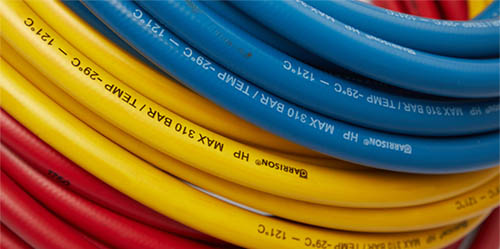Maximise Hygiene
How to Prevent Listeria from Spreading in Your Food Factory
As part of our commitment to helping food manufacturing businesses to maximise their levels of hygiene, we’re always ready to explain how our innovative equipment will benefit your cleaning teams. This time we’re taking a look at Listeria – what it is, why it’s such a huge issue, and how to prevent it from spreading in your facility.
What is Listeria?
Listeria Monocytogenes is the most common species of Listeria which can cause Listeriosis in humans. Listeria is one of the few bacteria that are able to multiply at low temperature, even as low as -1.5°C, which means it has the potential to grow even in food held in refrigerated storage. The most common cause of Listeriosis is the consumption of contaminated food, which means that food factories have to go above and beyond to prevent the disease from entering production areas.
What are the symptoms of Listeriosis?
Listeriosis can cause serious disease. It primarily affects pregnant women, new-born babies and elderly people, although anyone can suffer from its symptoms. Listeriosis can cause significant health problems in foetuses and babies, plus it can lead to sepsis, meningitis or encephalitis in people with weakened immune systems.
According to the CDC, most cases of invasive Listeriosis require hospital care and one in five people with the infection die as a result of contracting it. Listeriosis is also a cause of miscarriage, stillbirth and new-born death, which shows just how serious the bacterium is and why it must be removed from food manufacturing environments.
Even young and healthy people can suffer from a range of symptoms if they eat food that contains Listeria, such as headache, fever, stiffness, aches and pains, loss of balance, confusion and convulsions.
By putting in place the right kind of cleaning equipment, your food business will gain the peace of mind that you’re protecting the general public, the wider food sector, and the reputation of your brand.
What’s the solution?
Listeria Monocytogenes can establish itself in multiple places, including floors, drains, equipment, air handling systems and cooling systems. When it comes to food factories, the most common location for the disease is floors, which is why we highly recommend the Nita Ceiling Hose Track. This clever piece of equipment keeps washdown hoses away from debris, dirt and bacteria on the floor, ensuring that the hose is hygienic and the water being sprayed over production areas remains uncontaminated.
The Nita Ceiling Hose Track isn’t just for high risk areas, as it can bring unparalleled levels of efficiency to multiple zones within your food manufacturing site. With the option to track the hose around corners, it can accommodate the washdown of even the largest spaces whilst remaining manoeuvrable and easy to operate. We absolutely love it and we’re sure your hygiene teams will too!


